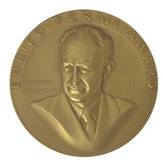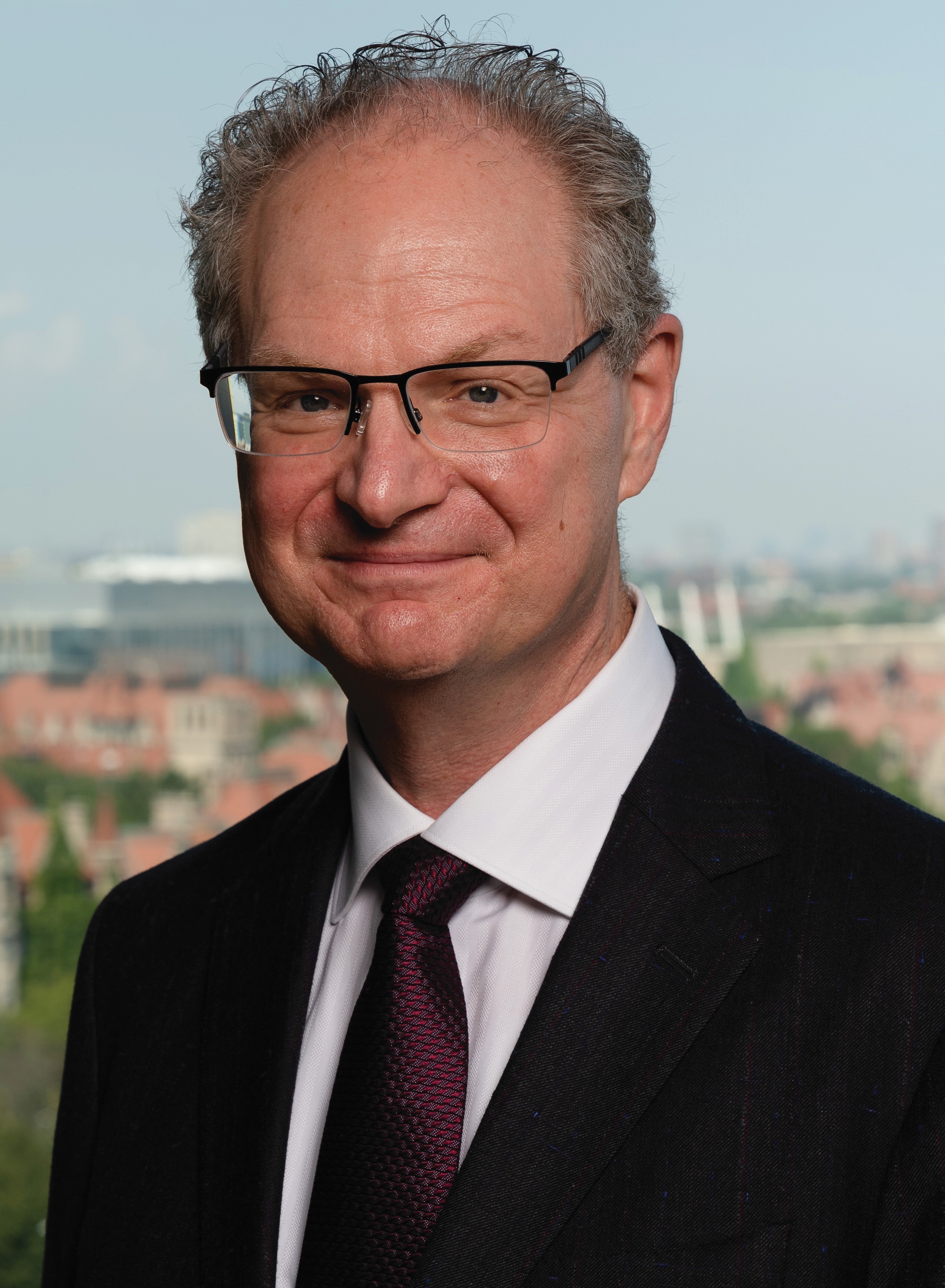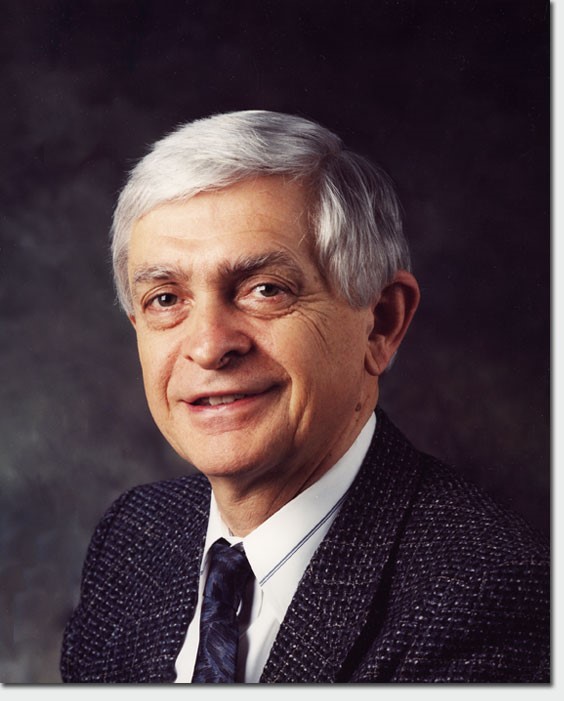Enrico Fermi Presidential Award Ceremony
 President Joseph R. Biden Jr. announced Héctor D. Abruña, Paul Alivisatos, and John Hopkins Nuckolls as the most recent recipients of the Enrico Fermi Presidential Award for their groundbreaking achievements in science.
President Joseph R. Biden Jr. announced Héctor D. Abruña, Paul Alivisatos, and John Hopkins Nuckolls as the most recent recipients of the Enrico Fermi Presidential Award for their groundbreaking achievements in science.
In honor of the recipients and their accomplishments, the Department of Energy hosted a hybrid award ceremony in Washington, D.C., on January 10, 2025.
- View a recording of the event
- View the event program
- View photos from the event
Stay updated using GovDelivery Alerts: visit GovDelivery to sign-up for Fermi and Lawrence Award announcement alerts.
The 2024 Enrico Fermi Presidential Award Winners:

Héctor D. Abruña, Ph.D., Cornell University
Honored for revolutionizing the fundamental understanding of electroanalytical chemistry and innovating characterization for development of batteries, fuel cells, and energy materials that have led to advancements for the electrical power grid and energy transformation and creation.

Paul Alivisatos, Ph.D., University of Chicago
Honored for developing the foundational materials and physical chemistry to produce beneficial nanocrystals and polymers with controlled size, shape, connectivity, and topology that underpin energy-efficient technology, optical devices, and medical diagnostic technology.

John Hopkins Nuckolls, M.A., Lawrence Livermore National Laboratory (Retired)
Honored for seminal leadership in inertial confinement fusion and high energy density physics, outstanding contributions to national security, and visionary leadership of Lawrence Livermore National Laboratory at the end of the Cold War.
Biographies:
Héctor D. Abruña, Ph.D.
Héctor D. Abruña, the Émile M. Chamot Professor in the Department of Chemistry and Chemical Biology at Cornell University, is an internationally recognized leader in electrochemistry and analytical chemistry. He did his early schooling in his native Puerto Rico and earned a BS in Chemistry from RPI in 1975. He completed his doctoral studies with Royce Murray and Thomas Meyer at UNC Chapel Hill in 1980 and was a postdoctoral research associate with Allen Bard at the University of Texas at Austin. After a brief stay at the University of Puerto Rico, he joined Cornell in 1983 and was Chair of the Department from 2004-2008.
Abruña is best known for revolutionizing the fundamental understanding of electrochemical interfaces by pioneering the development of operando techniques with emphasis on X-ray based methods, transmission electron microscopy (TEM) and differential electrochemical mass spectrometry (DEMS). His group pioneered the development of non-precious metal based electrocatalysts for alkaline fuel cells as well as novel materials for batteries, supercapacitors, molecular assemblies and electrochemical sensors.
He is a member of the National Academy of Sciences and the American Academy of Arts and Sciences. He has received numerous awards including the 2024 Global Energy Prize, the 2021 American Chemical Society Award in Analytical Chemistry, and the 2017 Gold Medal of the International Society of Electrochemistry. He is the co-author of over 600 publications and has given over 700 invited lectures world-wide. He considers his 65 Ph.D. students and over 70 Post-Doctoral associates as his most important professional achievement.
Paul Alivisatos, Ph.D.
Paul Alivisatos is president of the University of Chicago and John D. MacArthur Distinguished Service Professor in the Department of Chemistry. President Alivisatos was previously executive vice chancellor and provost of the University of California, Berkeley, where he held numerous positions including director of the Lawrence Berkeley National Laboratory from 2009-2016. Alivisatos received a bachelor’s in chemistry from the University of Chicago and his PhD in chemistry from Berkeley. As a preeminent scientist and entrepreneur, his pioneering research in nanomaterials have demonstrated key applications of nanocrystals in biological imaging and renewable energy. For his work, he has been recognized with numerous awards, including the Linus Pauling Medal, the Wolf Prize in Chemistry, the Priestley Medal, and the National Medal of Science. Most recently, he was awarded the 2024 Kavli Prize in Nanoscience.
John Hopkins Nuckolls, M.A.
John Hopkin Nuckolls, the seventh director of Lawerence Livermore National Laboratory, took office during a time of unprecedented change during the end of the Cold War and the transition to the post-Cold War world. Nuckolls was born in Chicago, Illinois. He received his B.S. in physics in 1953 from Wheaton College in Illinois, and an M.A. in physics in 1955 from Columbia University in New York. That same year he came to Livermore to work as a staff physicist in Nuclear Weapons Design. In 1975 he became an associate program leader in Laser Fusion, then a division leader in Inertial Fusion, and in 1983 was appointed the associate director for Physics. Nuckolls served as director of the Laboratory from 1988–94, and then as associate director at large, and finally director emeritus.
Nuckolls’ contributions to national security and the development of fusion energy have been recognized by awards and citations such as the Ernest O. Lawrence Award presented to him in 1969 by the Atomic Energy Commission, the Lifetime Achievement Award in 1996 by Fusion Power Associates, the Secretary of Defense Medal for Outstanding Public Service in 1996, and the Department of Energy Distinguished Associate Award in 1995. He is the author of over 90 publications, including "Post-Cold War Nuclear Dangers: Proliferation and Terrorism," a Science article published February 1995. Nuckolls is a fellow of both the American Physical Society and the American Association for the Advancement of Science.
The Enrico Fermi Presidential Award was established in 1956 as a memorial to the legacy of Enrico Fermi, an Italian-born naturalized American citizen and 1938 Nobel Laureate in physics, who achieved the first nuclear chain reaction in 1942. It is given to encourage excellence in research in energy science and technology benefiting humanity; recognize scientists, engineers, and science policymakers who have given unstintingly over their careers to advance energy science and technology; and inspire people of all ages through the examples of Fermi, and the Fermi Award laureates who followed in his footsteps, to explore new scientific and technological horizons.
The Fermi Award is administered on behalf of the White House by the U.S. Department of Energy (DOE).
Stay updated using GovDelivery Alerts: Visit GovDelivery to sign-up for Fermi and Lawrence Award announcement alerts. This is an opt-in, opt-out service where subscribers can decide which topics they’re interested in, then join or drop off as their interests change. Please create an account and choose “add subscriptions” to see additional options.


